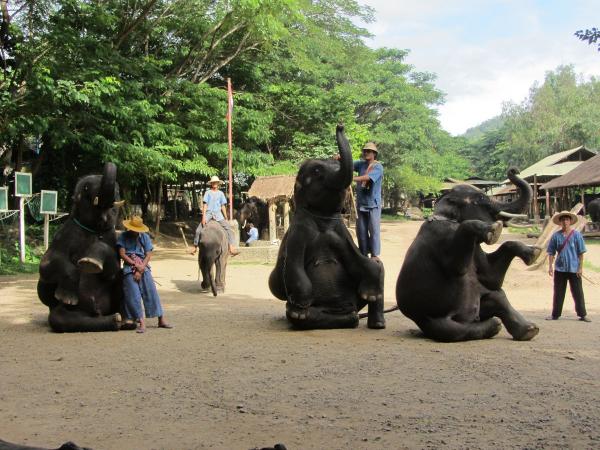Captivity - Fake Sanctuaries

Many animal centers run under misleading names such as shelters or orphanages, thus playing with the sensitivity of people. However, many of them are nothing else than just another business exploitation of animals. A genuine and well-managed recovery center does not breed animals, nor do they trade with them, train them to perform or allow contact between the animals and visitors.
Keeping animals in captivity should not be supported, unless it is for their own benefit- for example when they have been rescued from unacceptable captive conditions and are unable to be returned to the wild. To breed animals for economic purposes, as selling them to zoos, handing them over to private collections or "sanctuaries", clearly does not meet these requirements.
Physical contact between tourists and animals may provide a popular ‘photo opportunity’, but we feel that it is demeaning for the animals and does not promote respect and compassion towards the wild. The same applies for chaining up baby animals to feed them in front of a crowd.
Genuine animal sanctuaries make the welfare of each individual animal their primary consideration in all sanctuary actions. If we look at decisions taken in fake sanctuaries, we get the impression that economic profit rules. We therefore encourage tourists not to visit sanctuaries nor support their actions unless they meet the requirements of their self-proclaimed sanctuary status.
Even though many genuine animal sanctuaries allow restricted access to their premises, it is always difficult to establish a balance between the decisions taken on behalf of the animals and those on behalf of the visitors. Such facilities should be judged against the best standards of welfare and care, not the worst, if they are to justify their existence as sanctuaries.
Therefore, genuine animal sanctuaries (or rescue centers) rescue, provide shelter, safety and quality care for animals that have been abused, injured, abandoned, orphaned or are otherwise in need. These facilities must meet the following requirements:
- Possess all required permits
- Do not buy animals
- Only accept impounded, abandoned or rescued animals
- Keep records of the origin of all animals, their relocation or death
- Do not sell animals
- Animals only leave the shelter when they are are relocated to another place offering the same or better conditions and only if it is in the interest of the animal
- Have a non-breeding policy and implement methods to control breeding
- No commercial exploitation of the animals, no shows nor picture taking
- Do not allow physical contact between visitors and animals
- Physical contact between keepers and animals is kept to a minimum and for veterinary or handling purposes only
- All animals are kept in clean, comfortable, enriched environments, appropriate for their species
- Animal welfare is enforced by veterinarians
